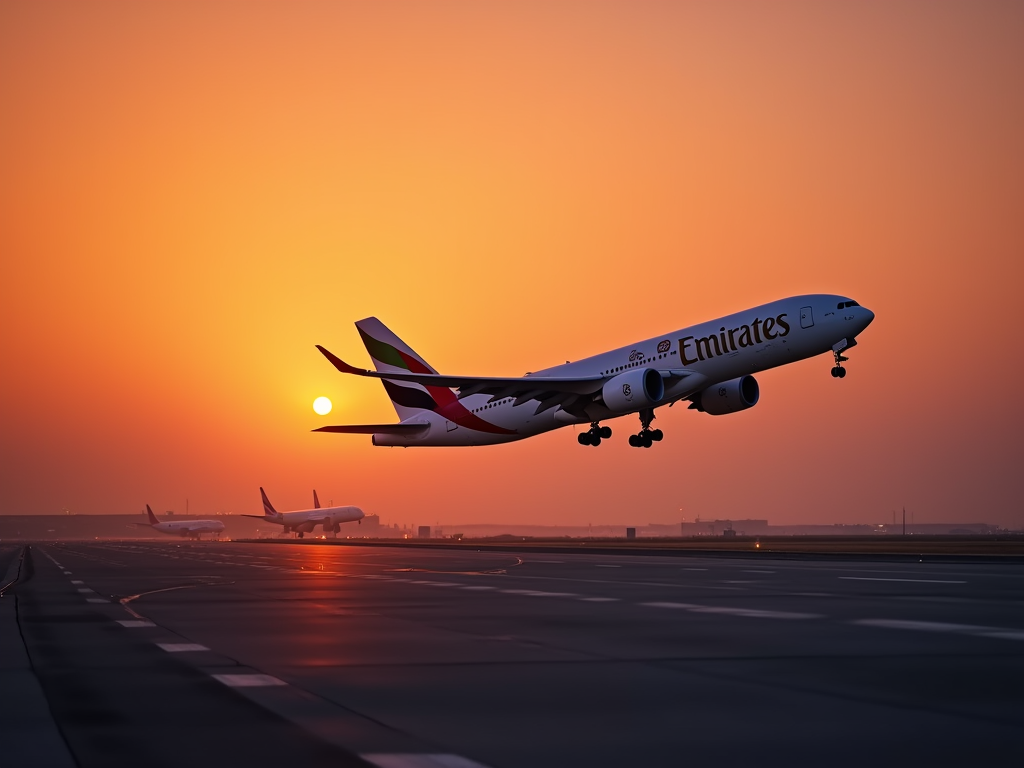Dubai’s aviation sector serves as a vital link facilitating global business expansion, boasting world-class airlines, innovative airport facilities, and strategic geographic positioning. By connecting the East and West, Dubai has positioned itself as a preferred hub for international trade and commerce. It not only attracts tourists but also serves as a major transit point for businesses aiming to reach global markets. The combination of state-of-the-art infrastructure, favorable business policies, and a burgeoning economy has made Dubai a focal point for multinational corporations. In this article, we will explore the critical factors contributing to Dubai’s aviation sector and its impact on global business operations.
The Strategic Geographic Positioning

Dubai is situated at the crossroads of Europe, Asia, and Africa, making it an ideal transit point for international flights. This strategic geographic location allows airlines to minimize flight times between major global destinations. The proximity to other thriving markets provides businesses with quick access to emerging economies, enhancing overall operational efficiency.
Additionally, the UAE’s government has invested in bilateral air transport agreements, which increase the number of routes and flights, further establishing Dubai as a global aviation hub. This position not only benefits travelers but also fosters significant economic activity in trade, logistics, and tourism sectors. Consequently, businesses can capitalize on reduced shipping times and costs, amplifying their market reach.
World-Class Infrastructure

Dubai International Airport (DXB), the world’s busiest international airport, is a testament to the city’s commitment to world-class infrastructure. With cutting-edge facilities, DXB can handle over 90 million passengers and offers an extensive range of services for both business and leisure travelers. Furthermore, the airport is equipped with advanced technology, facilitating faster check-in and security procedures.
The newly opened Al Maktoum International Airport is set to further boost capacity with the potential to handle over 200 million passengers annually. Such infrastructure supports the growing number of global companies establishing regional offices in Dubai, benefiting from the ease of travel and efficient logistics. In summary, the exceptional infrastructure is a catalyst for attracting foreign investment and talent.
Dubai’s favorable business policies contribute significantly to its aviation sector’s success. Economic free zones provide tax exemptions and simplified regulations, encouraging companies to set up shop. These zones also help with logistics, allowing businesses to establish a physical presence without the bureaucratic hurdles common in other nations.
Moreover, Dubai’s non-intrusive visa policies make it easier for international business professionals to live and work in the region. From short-term visas to long-term residency options, the emirate provides flexibility for global talent. This has a direct positive impact on aviation, as more business travelers are drawn to the city, boosting airline revenues and overall economic activity.
Robust Airline Connectivity
Emirates Airlines and Etihad Airways have positioned Dubai as a premier travel hub with an impressive fleet of aircraft serving more than 150 destinations worldwide. These airlines have set high standards for customer service, operational efficiency, and pricing strategies, delivering passengers and cargo swiftly and reliably.
Enhanced airline connectivity allows businesses to forge trade relations across various international markets. The number of direct flights to cities like New York, London, and Singapore creates numerous opportunities for partnerships and collaborations. Additionally, the rise of low-cost carriers is expanding connectivity to previously underserved regions, further amplifying the possibilities for business expansion.
Conclusion
In conclusion, Dubai’s aviation sector is not merely a means of travel but a crucial catalyst for global business expansion. From its strategic geographic positioning and world-class infrastructure to flexible business environments and robust airline connectivity, every aspect of Dubai contributes to creating a business ecosystem conducive to success. As companies continue to seek new markets, Dubai stands out as an optimal choice for international operations.
Frequently Asked Questions
1. How does Dubai’s aviation sector benefit global businesses?
Dubai’s aviation sector provides efficient connectivity, reducing travel times and costs, making it easier for businesses to access international markets.
2. What role does Dubai International Airport play in global trade?
Dubai International Airport serves as a major transit point for international flights, enabling swift movement of goods and people, thus supporting global trade.
3. Are there special business zones in Dubai that benefit aviation?
Yes, Dubai offers economic free zones that provide tax incentives and simplified regulations, attracting airlines and businesses focused on international operations.
4. How do Emirates Airlines and Etihad Airways contribute to Dubai’s economy?
Emirates and Etihad airlines significantly boost Dubai’s economy by providing extensive flight routes, enhancing tourism, and facilitating international trade.
5. Why is Dubai considered a hub for business professionals?
Dubai’s favorable visa policies and business-friendly environment make it attractive for global professionals seeking a dynamic marketplace with vast opportunities.
